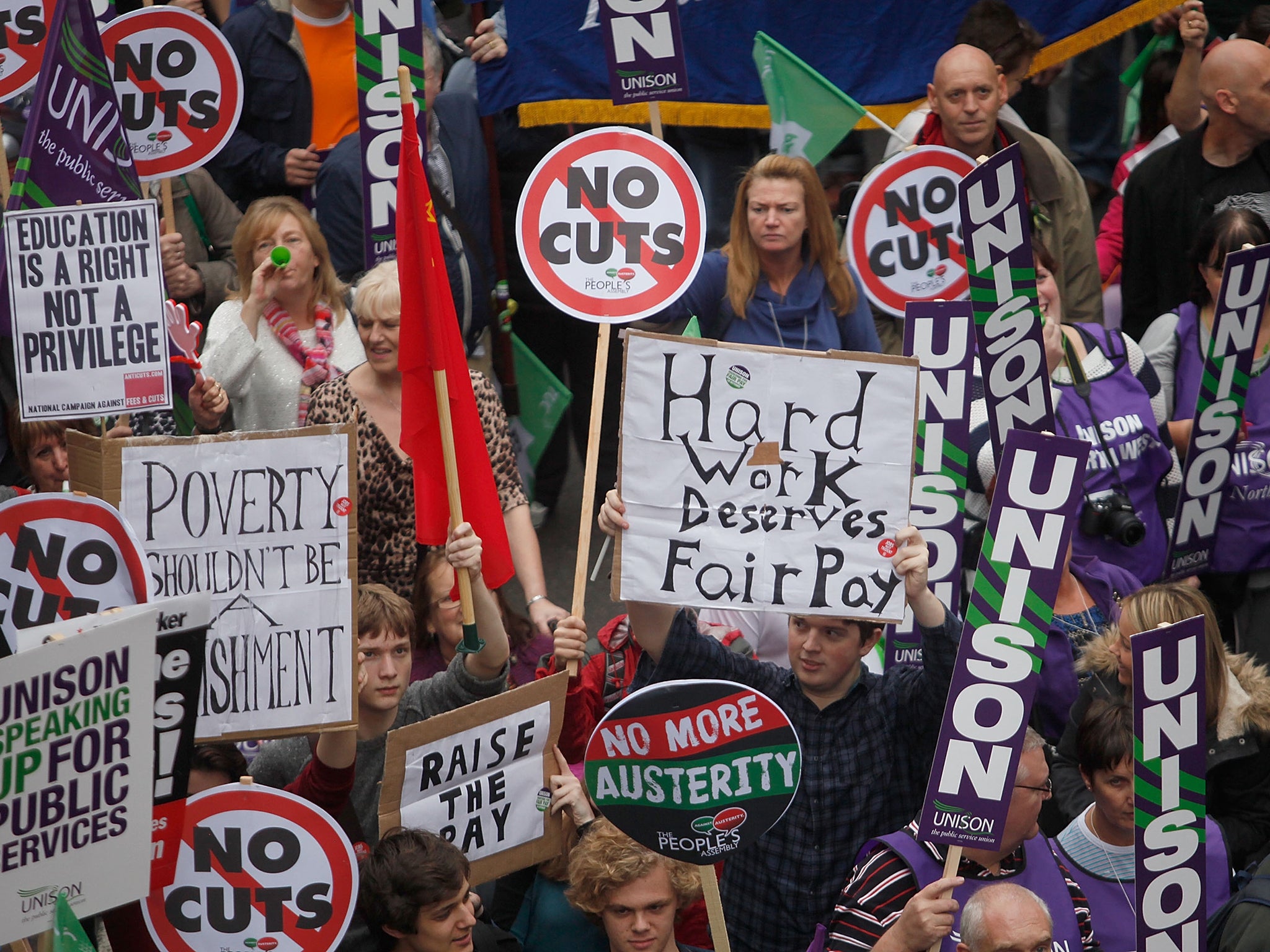Living standards are tumbling – here’s why public sector strikes are justified
Strikes in the public sector aren’t much fun but real-terms pay cuts make them absolutely necessary, writes James Moore


There’s some welcome good news for ordinary everyday bank workers – the kind for whom the megabucks earned by their executives and city colleagues are but a distant dream obtainable only via lottery wins.
The union, Unite, tweeted that it had secured a £1,000 one-off payment for three out of four staff working at Virgin Money. Those who earn less than £50,000 annually will qualify. The bank said the cash would be paid in addition to a 5 per cent pay rise that took effect earlier this year.
It was the second such wage increase announced in the banking sector recently. Santander said it would give more than 11,000 employees a 4 per cent pay bump from August. This covers all those earning less than £35,000 and represents 60 per cent of the workforce.
The importance of these announcements – although for most workers it will not halt the cost of living squeeze – was writ large after official labour market data revealed that the living standards of British workers have been falling at a record clip.
Earnings grew by 4.3 per cent in the three months to May across the public and private sectors (excluding bonuses). But in real terms, after inflation is factored in – which is what counts – they were down by 2.8 per cent. Needless to say, the top 1 per cent have not been affected by the drain. Their pay rose slightly in real terms.
Just how problematic this data is for those at the lower end of the pay scale was illustrated by researcher Kantar, which issued its latest update on our supermarket shopping habits, their sales, market shares and the like on the same day.
Kantar said grocery price inflation hit 8.1 per cent for the 12 weeks to 10 July. That translates into an annual increase of £454 for the average family. There won’t be much left after tax for the Virgin workers after that has been accounted for. Remember too that energy prices – them again – are set to rise to as much as £3,000 this winter.
This brings us neatly back to the public sector. Those announcements by the banks are far from unique. Rolls Royce did something similar earlier this year. The supermarkets have pushed up their workers’ pay too.
It wasn’t so long ago that those same ministers were standing on their lockdown doorsteps clapping “NHS heroes” and other key workers, following the lead of a grateful nation while making very sure they had someone on hand to photograph them doing it so they could put it on Twitter.
NHS workers at least got some sort of rise out of that – although it was inadequate. Other parts of the public sector, however, suffered a pay freeze. Teachers, for example.
Is it any wonder the government constantly runs ads exhorting us to “get into teaching”. It has to operate what amounts to a permanent recruitment campaign because it’s not just a case of the money declining. Teachers also find themselves lost in a blizzard of Whitehall diktats, which have the effect of slowly sucking the joy out of the job.
Similar ads are running with the aim of encouraging people to join a hollowed-out police service. Other branches of the public sector face similar staffing problems. It’s just that the Tories don’t feel the need to pretend to love them like they do the Old Bill, at least when it suits them.
On Tuesday, millions of public sector workers were awarded pay hikes of between 4 and 5 per cent, including most nurses, teachers and police officers with the government having accepted “fair and sustainable” increases recommended by state review bodies. It took them long enough.
However, the big public sector unions are still restive and warned that they would ballot members on industrial action, pointing out that the “kick in the teeth” settlements will not keep pace with soaring inflation.
Strikes in the public sector aren’t much fun for the public. But consider the case I’ve laid out. Don’t you think they would be justified if, as expected, public sector workers are told that they have to endure yet more real-term pay cuts as well as lectures on why they alone have to make sacrifices to keep inflation under control, a job at which ministers, and the Bank of England, are singularly failing?






Join our commenting forum
Join thought-provoking conversations, follow other Independent readers and see their replies
0Comments